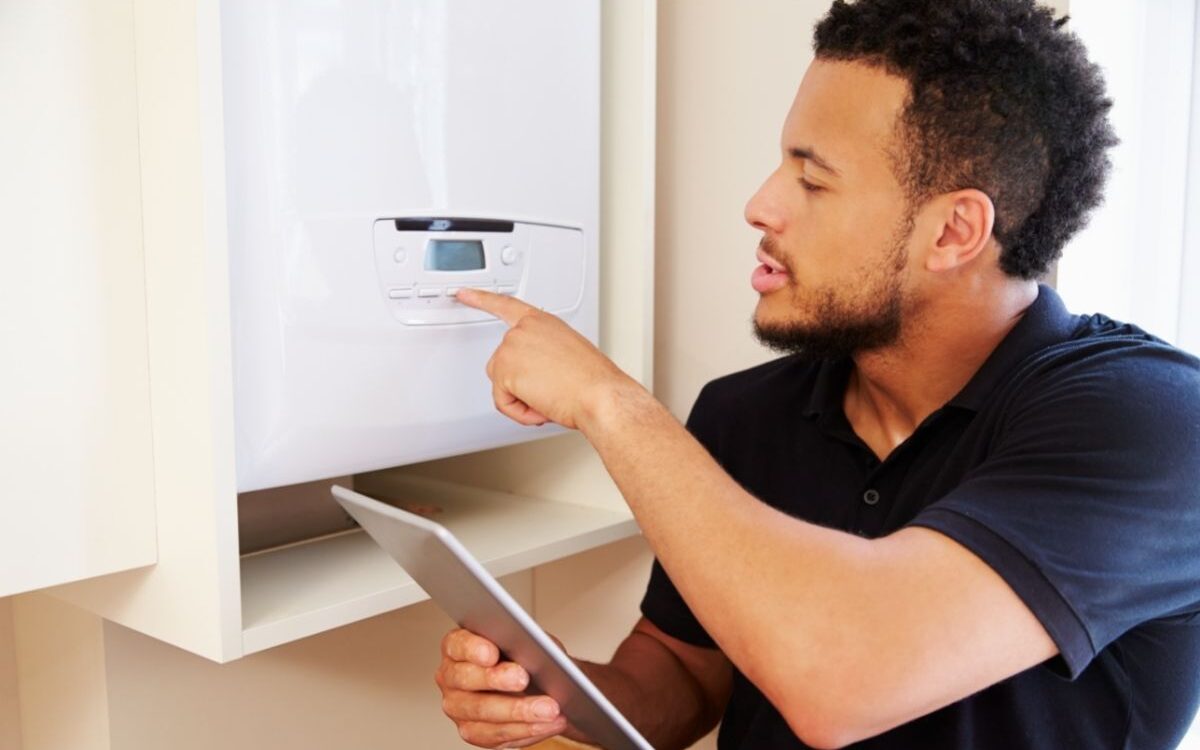Welcome to this informative article discussing an important aspect of boiler maintenance: boiler pressure. As a critical component of any heating system, boiler pressure plays a pivotal role in ensuring the efficient and safe operation of boilers. However, like many things in life, balance is key. Both too high and too low boiler pressure can lead to various issues, potentially causing damage to the system or even posing safety risks.
In this article, we will delve into the consequences of extreme boiler pressure levels, explore ways to identify if the pressure is too high or too low, and provide expert guidance on how to maintain the ideal boiler pressure for optimal performance.

The Significance of Proper Boiler Pressure
Before we delve into the specifics, let’s understand the significance of maintaining the right boiler pressure. The boiler pressure refers to the force exerted by the steam or water within the boiler system. It is measured in units of pressure, such as PSI (Pounds per Square Inch) or bar.
Why Does Boiler Pressure Matter?
Maintaining the correct boiler pressure is crucial for several reasons:
- Efficiency: Proper boiler pressure ensures efficient heat transfer, leading to optimal energy utilization and reduced operational costs.
- Safety: Excessive pressure can strain the boiler’s internal components, leading to potential leaks or even explosions. On the other hand, low pressure may result in inadequate heating and cause the boiler to overheat.
- Longevity: Correct pressure levels prevent unnecessary wear and tear on the boiler, prolonging its lifespan.
The Impact of High Boiler Pressure
High boiler pressure can be detrimental to both the boiler and the entire heating system. Let’s explore the potential consequences:
1. Increased Strain on Components
When the pressure exceeds the recommended limits, the internal components of the boiler experience excessive strain. This strain can lead to leaks, cracks, or other forms of damage, compromising the overall integrity of the system.
2. Safety Risks
High boiler pressure poses serious safety risks. If left unchecked, the pressure can build up to dangerous levels, leading to boiler explosions or other hazardous incidents. These incidents can cause severe injuries or property damage.
3. Reduced Efficiency
Contrary to what one might think, high boiler pressure can decrease the overall efficiency of the system. The increased pressure causes an uneven distribution of heat, resulting in energy wastage and reduced heating effectiveness.
Identifying High Boiler Pressure
Recognizing high boiler pressure is essential for timely intervention and damage prevention. Look out for the following signs:
- Rapidly rising pressure gauge needle.
- Loud banging or clanging noises coming from the boiler.
- Water leaks around the pressure relief valve.
- Frequent activation of the pressure relief valve.
How to Reduce High Boiler Pressure
If you identify high boiler pressure, take the following steps to rectify the issue:
- Bleed Radiators: Air trapped in the heating system can contribute to increased pressure. Bleeding the radiators will release the trapped air.
- Check Pressure Relief Valve: Ensure that the pressure relief valve is functioning correctly. If it’s faulty, replace it immediately.
- Reduce Water Intake: Adjust the water intake to bring the pressure within the recommended range.
The Consequences of Low Boiler Pressure
Just as high pressure is problematic, low boiler pressure also brings its share of issues. Let’s understand the potential consequences:
1. Inadequate Heating
When the pressure is too low, the boiler may fail to generate sufficient heat, leaving your home inadequately heated.
2. Increased Energy Consumption
A boiler operating at low pressure will struggle to maintain the desired temperature, leading to longer heating cycles and increased energy consumption.
3. Frozen Condensate Pipes
During colder months, low boiler pressure can cause the condensate pipes to freeze, further disrupting the heating system.
Identifying Low Boiler Pressure
Detecting low boiler pressure is vital for timely adjustments. Keep an eye out for these indicators:
- The pressure gauge showing pressure significantly below the normal range.
- Radiators are cold at the top while warm at the bottom.
- Frequent lockouts or error messages on the boiler’s display.
How to Increase Low Boiler Pressure
To raise the boiler pressure to the optimal level, follow these steps:
- Check for Leaks: Inspect the entire system for any leaks that may be causing the pressure drop. Fix any leaks you find.
- Repressurize the System: Use the boiler’s filling loop or filling link to increase the water pressure. Be cautious not to overpressurize.
- Vent Radiators: Bleed the radiators to release trapped air, which could be contributing to low pressure.

Maintaining the Ideal Boiler Pressure
Now that we have covered the impact of both high and low boiler pressure, let’s explore how to maintain the ideal pressure:
1. Regular Inspections
Schedule regular boiler inspections with a certified technician. They can identify and address pressure-related issues before they escalate.
2. Monitor Pressure Gauges
Keep an eye on the boiler’s pressure gauges regularly. This simple practice can help you catch pressure variations early on.
3. Conduct Seasonal Checks
Perform seasonal checks to ensure your boiler is prepared for temperature fluctuations.
4. Educate Residents
If you reside in a property with a boiler system, educate all occupants about boiler pressure and the signs of abnormal pressure levels.
5. Professional Maintenance
Hire a qualified professional to perform annual maintenance on your boiler. This will ensure its longevity and efficient performance.
6. Understand the System
Familiarize yourself with your boiler system’s user manual to understand the pressure requirements and how to operate the boiler effectively.
FAQs
Should I Worry If My Boiler Pressure Fluctuates Within the Recommended Range?
Boiler pressure can fluctuate slightly within the recommended range due to temperature changes and other factors. However, if the fluctuations are too frequent or excessive, it’s best to consult a professional technician.
Can I Adjust the Boiler Pressure Myself?
While some boilers allow homeowners to adjust the pressure, it is recommended to leave such tasks to professionals. Incorrect adjustments can lead to severe consequences.
How Often Should I Check My Boiler’s Pressure?
Ideally, you should check your boiler’s pressure gauge at least once a month and more frequently during colder months.
What Should I Do If My Boiler’s Pressure Is Too High and It Is Making Strange Noises?
If your boiler’s pressure is too high and you hear unusual noises, turn off the boiler immediately and call a qualified technician to inspect and rectify the issue.
Can Low Boiler Pressure Cause Irreversible Damage?
If left unaddressed for an extended period, low boiler pressure can cause damage to the boiler’s internal components, leading to costly repairs.
Is There Any Connection Between Boiler Pressure and Heating Efficiency?
Yes, boiler pressure directly impacts heating efficiency. Both too high and too low pressure can reduce

